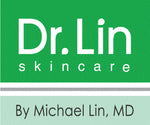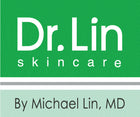What is Cystic Acne? Dr. Lin Explains
Having practiced dermatology for over 16 years, a common form of acne that I have seen in my patients is cystic acne. And as someone who has personally struggled with acne, I understand that acne can cause feelings of embarrassment and frustration regarding one’s skin. Cystic acne can occur among people of all ages and it is important to understand what it is and how it can affect one’s skin.
What is cystic acne?
Cystic acne or nodulocystic acne is the most severe form of acne. Cystic acne is a type of severely deep inflamed acne and can affect tissue that is deeper down than its more superficial counterpart, common acne.
They can feel like soft, fluid-filled lumps that are formed under the skin’s surface, and can be painful at times. These nodules that are formed deep under the skin can also take a period of time to heal, depending on how severe the acne can be. These deep, inflamed breakouts develop on the face and/or other areas of the body. The blemishes themselves can become large and may measure several centimeters across.
What causes cystic acne?
Overproducing sebum causes cystic acne. Sebum is an oily substance that is secreted by the sebaceous glands. Sebum’s main purpose is to protect the skin and hair from drying out. When there is an excess of sebum, the oil is unable to push the extra amount of oil to the surface, which causes the gland to burst underneath the skin, creating a large swollen mass (cyst) below the skin’s surface. Once that occurs, it can be extremely painful and cystic acne is formed.
Research has also shown that cystic acne involves a genetic component as well as a strong hormonal component. The onset of puberty, pregnancy, menstrual cycle, premenopausal, and menopause are also factors that can result in cystic acne.
Treatments for cystic acne
Since cystic acne affects deeper skin tissue, it can also bring about a higher chance of scarring. Therefore, it is important to remember to not pick at any of the blemishes. In most cases, a prescription oral antibiotic is the best way to treat cystic acne. If you are not seeing improvements with topical solutions, contact your dermatologist for a treatment plan that’s right for you.
Remember cystic acne can be treated! The first step is in understanding what cystic acne is and what causes it. How has cystic acne affected you? What treatments have you found to be most helpful?


Leave a comment